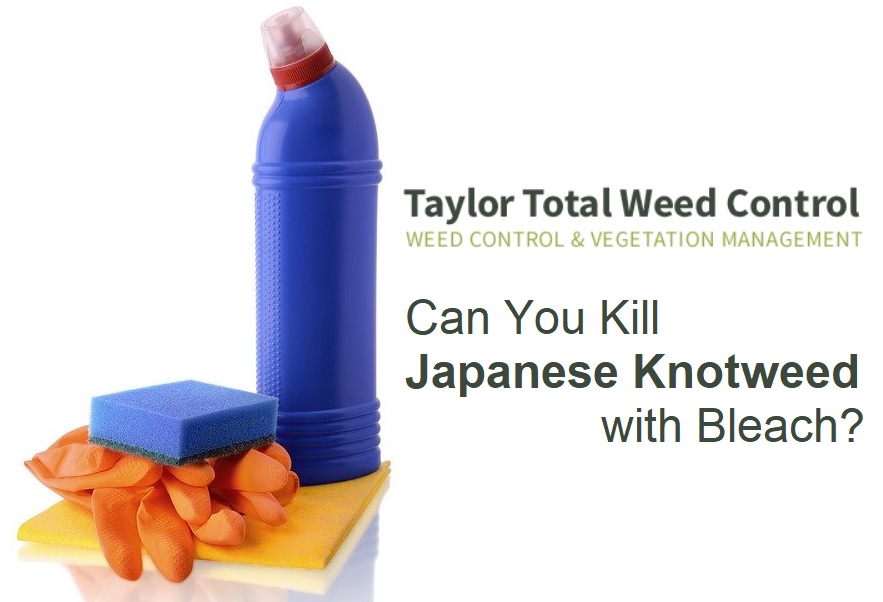
Bleach is a household cleaning product that's great for killing germs in the bathroom - but it shouldn't be used to kill weeds.
If you've got Japanese knotweed on your property, you probably don't need us to tell you how difficult this invasive species is to get rid of. Knotweed is infuriatingly resilient; supermarket weedkillers tend to be ineffective, so your only real options are excavation or long-term control with specialist herbicides.
Of course, both of those methods are costly and require a lot of work, so you may be tempted to just grab a bottle of disinfectant from under your kitchen sink and bleach your knotweed to death.
Bu that's a very bad idea, and here are three reasons why:
1. Bleach probably won't kill your Japanese knotweed.
The first and most obvious reason not to use bleach on your Japanese knotweed is that it's unlikely to have the desired effect. The bleach may damage the knotweed, but will it actually eradicate the plant? Don't bet on it.
In all likelihood, your application of bleach will totally fail to destroy the knotweed's rhizome root system (see Japanese Knotweed Roots: Your Questions Answered). Your Japanese knotweed will live to fight another day, and you'll have wasted a bottle of bleach.
And that could be the least of your problems...
2. You might damage the other plants in your garden.
Bleach isn't designed for use as a weed killer. If you've used commercial weed control products in your garden before, they were probably 'selective' weed killers that kill certain plant species while leaving others unaffected (see Types of Weed Killer).
Bleach doesn't have that ability. If you have plants in your garden that you don't wish to destroy, remember that splashing bleach onto their leaves or getting bleach in the soil will put them at risk too. The flowers you've planted over the years probably aren't as doggedly durable as Japanese knotweed, and while that rhizome root system is well equipped to cope with whatever cleaning products you may throw at it, your beloved fuchsias probably won't be so lucky.
3. Groundwater supplies may become contaminated.
As if the risk to plant life weren't bad enough, using bleach to tackle your Japanese knotweed problem may pose a hazard to human health as well.
If your bathroom bleach were to seep into groundwater supplies, this could contaminate people's drinking water and do some real harm. So don't go throwing bleach around outdoors!
When dealing with Japanese knotweed, the safest and most sensible solution is to call an expert. We at Taylor Total Weed Control are specialist Japanese knotweed contractors with years of experience - give us a call on 029 2039 7554 to get a quote for our Japanese knotweed removal services.
Request a FREE Japanese Knotweed Survey
Photo from Pixabay
